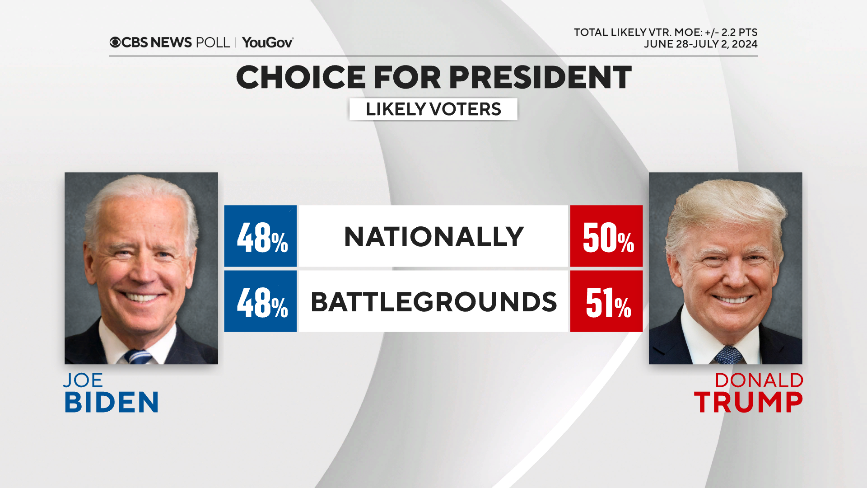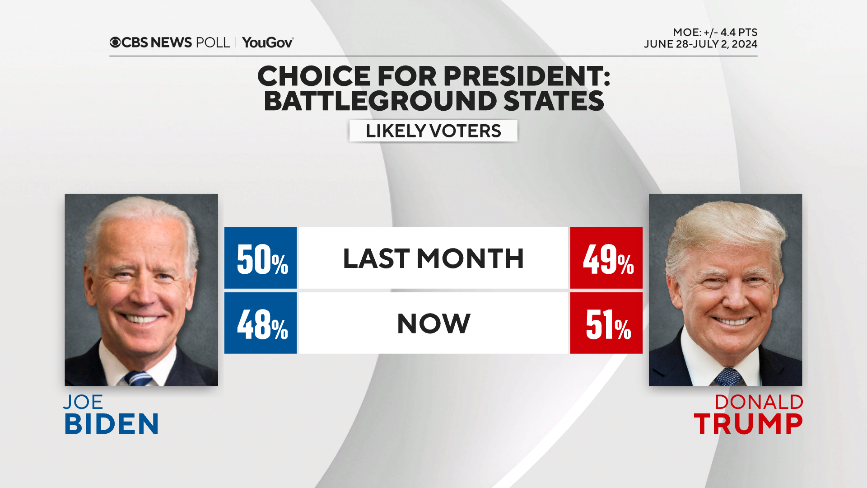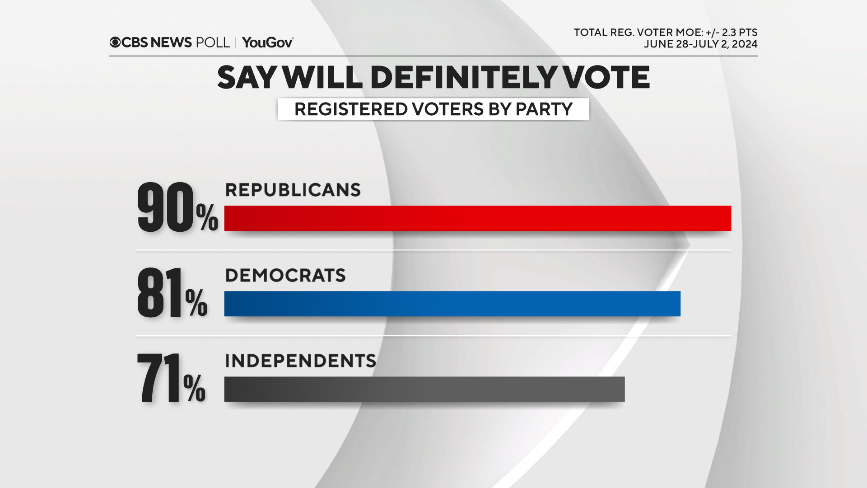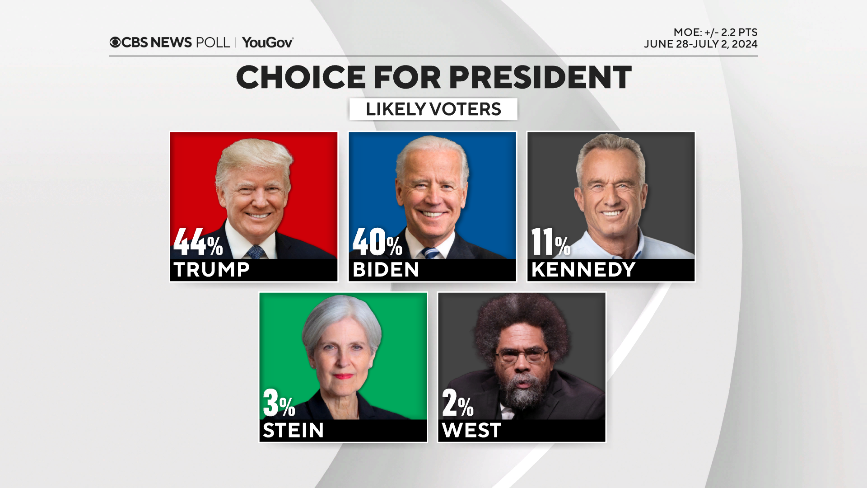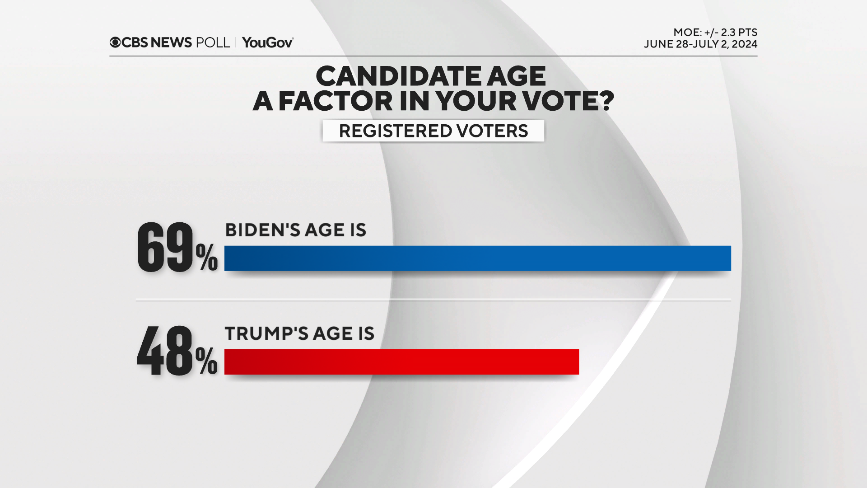The race for president has shifted in Donald Trump’s direction following the first 2024 presidential debate. Trump now has a 3-point edge over President Biden across the battleground states collectively, and a 2-point edge nationally.
A big factor here is motivation, not just persuasion: Democrats are not as likely as Republicans to say they will “definitely” vote now.
Perhaps befitting a race with two well-known candidates and a heavily partisan electorate, over 90% of both Mr. Biden’s and Trump’s supporters say they would never even consider the other candidate, as was the case before the debate, which helps explain why the race has been fairly stable for months. Recall that Mr. Biden had gained a bit back in June, after Trump was convicted of felonies in New York, but that didn’t dramatically alter the race either.
That said, the preference contest today does imply an Electoral College advantage for Trump.
Meanwhile, half of Joe Biden’s 2020 voters don’t think he should be running this year — and when they don’t think so, they are less likely to say they’ll turn out in 2024, and also more likely to pick someone else, either Trump or a third-party candidate.
Donald Trump, for his part, finds most Republicans feeling bolstered after the debate, saying it made them more likely to vote. And independents remain tightly contested, with Trump narrowly edging up with them now.
Nationwide, Republicans are more likely than Democrats to say they will definitely turn out in 2024. And Republicans currently have a similarly sized turnout advantage across the battleground states, undergirding Trump’s edge with likely voters there.
When Robert F. Kennedy Jr., Jill Stein, and Cornel West are included in a national ballot test, Trump’s national edge over Mr. Biden expands to four points. Kennedy draws roughly equally from both candidates, but Mr. Biden cedes a little more to Stein and West, bringing down his overall percentage.
For many voters, both candidates’ ages are a factor, not just Mr. Biden’s. When people see an equivalence there, Mr. Biden benefits: he leads Trump among those who say both.
The trouble for Mr. Biden is that he trails badly among those for whom only his age is a factor.
Immediately following the debate, CBS News’ polling showed increasing numbers of voters believing Mr. Biden did not have the cognitive health for the job and that he should not be running. A large seven in 10 still say he should not be running. (It’s three points fewer now than immediately after the debate, perhaps because the Biden campaign pushed back on the idea, but remains the dominant view among voters, and of a sizable four-in-10 share of Democrats.)
Mr. Biden did not gain any ground on Trump on a number of personal qualities: Trump leads Mr. Biden on being seen as competent, tough, and focused. The president continues to be seen as more compassionate.
CBS News considers the battlegrounds as the states most likely to decide the election in the Electoral College: Arizona, Georgia, Michigan, North Carolina, Nevada, Pennsylvania and Wisconsin.
This CBS News/YouGov survey was conducted with a representative sample of 2,826 registered voters nationwide interviewed between June 28-July 2, 2024. The sample was weighted by gender, age, race, and education, based on the U.S. Census American Community Survey and Current Population Survey, as well as past vote. The margin of error for registered voters is ±2.3 points. Battlegrounds are AZ GA MI NC NV PA WI.

